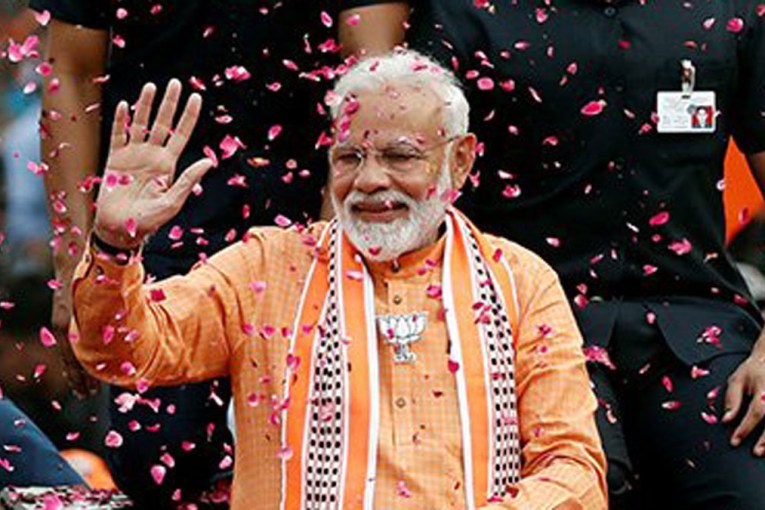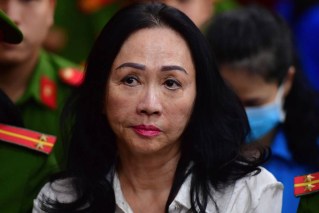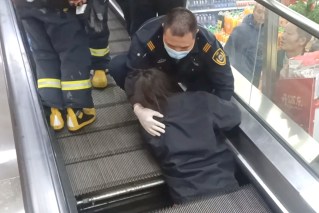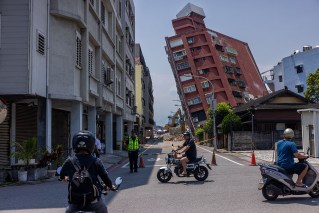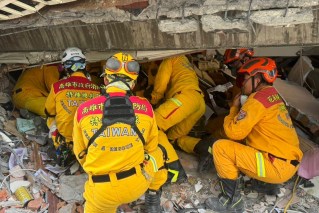Beijing responds to Hong Kong voters’ slapdown

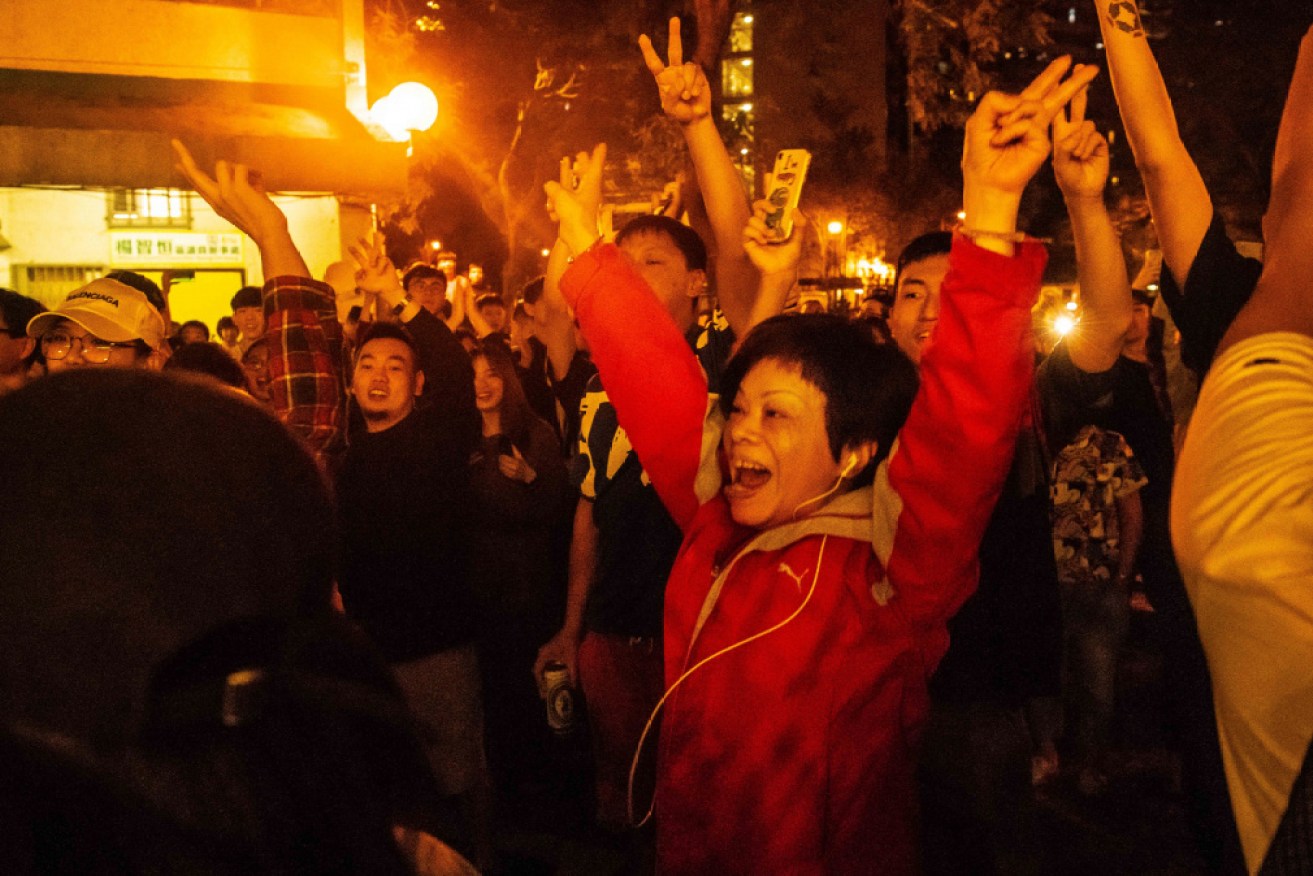
Hong Kong residents celebrate the weekend's election results. Photo: AAP
Beijing has responded to the resounding defeat of pro-China parties in the former colony’s local elections by setting up a new crisis command centre on its side of the Hong Kong border.
China is also considering replacing its official liaison in Hong Kong – which has been rocked by months of often violent pro-democracy action – as it tries to tighten control and manage the upheaval.
Mass protests erupted in Hong Kong in June over an extradition bill that would have allowed individuals to be sent for trial to the mainland.
That bill has been killed, but the protests have only spread and become more violent, powered by a perception Beijing is meddling improperly in Hong Kong’s affairs and by complaints of police brutality.
The crisis centre is based at a secluded villa just on the mainland side of Hong Kong’s border. The same villa was a command centre during “Occupy democracy” protests that rocked Hong Kong in 2014.
In recent weeks, top Chinese officials have gathered at the leafy compound to plot strategy and issue instructions aimed at defusing the former colony’s ongoing crisis, according to six people familiar with the matter.

Shenzen, on the right of the Sheung Yue river, and Hong Kong on the left. Photo: Getty
Diplomat said using the Shenzhen villa as a crisis centre – with a direct channel to top leader Xi Jinping – pointed to the gravity of the situation in Hong Kong.
Meanwhile, in a sign of dissatisfaction with the handling of months of demonstrations by the Liaison Office of the Central People’s Government in Hong Kong, Beijing is reportedly considering potential replacements for the office’s director, Wang Zhimin.
Mr Wang is the most senior mainland political official stationed in Hong Kong.
His office is an official Chinese government body that funnels communications between Beijing and the former colony. It is housed in a Hong Kong skyscraper stacked with surveillance cameras, ringed by steel barricades and topped by a reinforced glass globe.
But the office has been criticised in Hong Kong and China for misjudging the ongoing protests.
“The Liaison Office has been mingling with the rich people and mainland elites in the city and isolated itself from the people,” a Chinese official said.
“This needs to be changed.”
The Liaison Office is also likely to face increased pressure after Hong Kong voters delivered a resounding defeat to pro-Beijing parties in local district elections on Sunday.
Pro-democracy candidates won more than 80 per cent of the seats, securing their first majority after running a campaign against Beijing’s perceived encroachments on Hong Kong’s liberties.
Hong Kong is governed under a charter that grants British-style rule of law until 2047, commonly referred to as “one country, two systems”.
-with AAP
